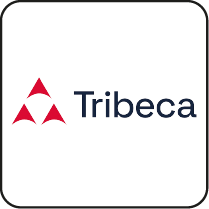More than five years after the EU General Data Protection Regulation (GDPR) came into force, the global privacy regulatory landscape is still evolving. Businesses contend with new regulations, varying requirements and increasingly sophisticated cyber threats.
Organisations operating across multiple geographies now need to comply with a range of regulations, such as GDPR, the California Consumer Privacy Act (CCPA), Brazil’s Lei Geral de Proteção de Dados (LGPD), China’s Personal Information Protection Law (PIPL) and more. Navigating the global privacy landscape can present a regulatory minefield. As businesses strive to meet requirements that vary by regulation and evolve rapidly, non-compliance risks are high. Worse, breaching regulations can lead to both heavy fines and significant reputational damage.
Now more than ever, businesses must take a long-term approach to privacy, adopting a compliance strategy that can scale with changing requirements.
Addressing The Rapidly Changing Regulatory Environment
Between 2024 and 2025 alone, the EU saw multiple regulatory updates featuring stringent privacy requirements come into effect, including the Network and Information Systems (NIS 2) Directive, the EU AI Act and the Digital Operational Resilience Act (DORA). There are also ongoing discussions around interpreting and applying the UK GDPR.
In addition, the traditional approach to compliance – leaning heavily on manual processes – isn’t sustainable. Managing compliance with spreadsheets, email chains, and physical documentation is no longer an efficient or effective approach and can lead to gaps in oversight and reduced data integrity.
In an evolving landscape, organisations that proactively manage their privacy compliance will be in a strong position to monitor and identify potential risks and prevent issues. This enables them to strategically reassess, update their controls and comply with new and revised regulations.
Taking a reactive approach, such as responding to compliance issues after they’ve arisen or after a breach, can lead to regulatory fines, increased costs and unsustainable compliance team workloads.
Does Privacy Compliance Pay?
Cisco’s 2025 Data Privacy Benchmark Study shows that the majority of businesses that take a proactive approach to privacy compliance see significant benefits. The report estimated privacy ROI, with over half (53%) of respondents reporting an estimated 1x to 2x return, and 29% estimating a more than 2x ROI.
Additional business benefits included:
- Increased customer loyalty and trust (79%)
- Improved operational efficiency (78%)
- Improved agility and innovation (78%)
- Increased company attractiveness to the public (78%)
- Mitigation of security losses (76%)
- Reduced sales delays (75%).
96% of respondents also agreed that the benefits from privacy investment are greater than the cost. Businesses that take a risk-based, future-proof approach to privacy compliance will be better positioned to unlock the many benefits of privacy investment.
Best Practices for Future-Proofing Compliance
Scalable Compliance Frameworks
Adopting scalable frameworks like ISO 27701, the privacy information management extension to information security standard ISO 27001, can help your organisation ensure readiness for new compliance requirements. ISO 27701 compliance enables you to develop, implement, maintain, and improve a privacy information management system (PIMS) to manage and safeguard PII.
The best practice framework gives you solid foundations from which to build and achieve compliance with data privacy regulations like GDPR and CCPA, as well as prepare for future compliance requirements. Additionally, implementing ISO 27701 using a scalable compliance platform like ISMS.online ensures your compliance workload is centralised, with customisable policy templates to reflect your organisation’s needs and automation to link identified risks to controls, assign risk ownership and send risk review reminders.
Proactive Monitoring
Use automated alerts and regulatory tracking tools to stay informed about upcoming compliance requirements, regulatory changes and more. This will help your organisation anticipate updates to privacy frameworks like ISO 27701 (currently undergoing review and will be replaced by ISO FDIS 27701), the NIST Privacy Framework (PF) and more.
Risk-Based Approach
ISO 27001, the information security standard, requires organisations to identify, assess and treat information security risks, building a compliant information security management system (ISMS). As mentioned, the ISO 27701 standard is an extension of ISO 27001; implementing both standards as a broader risk management strategy enables organisations to monitor and address operational risks, building a robust integrated management system (IMS).
Key information security controls that support privacy compliance include:
- Encryption to secure sensitive information
- Firewalls to provide a barrier between an internal network and the external network, preventing unauthorised access to data.
- Access control to limit who can access sensitive information and what actions users can take with sensitive data.
- Intrusion detection systems to monitor network activity for signs of malicious activity, alerting security teams to potential threats.
Integration with Business Operations
Taking a compliance-by-design approach involves embedding compliance processes directly into business workflows and designing processes and systems from their inception. Leadership involvement is key to creating a culture of compliance, setting the tone for how compliance is addressed throughout the business.
Employee training and awareness are core elements of embedding compliance processes within a business, demonstrating why privacy compliance is vital and educating employees on their own privacy compliance responsibilities.
Leveraging Technology for Scalable Compliance
Achieving privacy compliance that scales with your business is faster and easier with the use of platforms like ISMS.online, which is designed and built to simplify compliance and save businesses time, money and resources.
Automated Alerts and Notifications
The ISMS.online platform generates automatic alerts for task reminders, policy review dates, scheduled risk assessments and more, allowing your compliance team to focus on key tasks rather than admin.
Ongoing Compliance
ISMS.online supports over 150 information security and privacy standards and regulations, with more added as new regulations develop. Businesses can proactively assess their existing compliance against upcoming regulatory changes and new requirements to identify and rectify potential compliance gaps.
Dashboards and Reporting
Your customisable ISMS.online dashboard provides a live overview of your project and its progress, with 360-degree oversight into the status of your policies, assets, risks and treatments, and more. Easily generate shareable reports, providing real-time insights into your project status for compliance tracking.
Version Control and Documentation
The platform’s version control feature creates trackable document changes, enabling businesses to keep clear audit trails and ensure audit-ready records for evolving regulations. Rather than scrambling to provide evidence of privacy compliance activities and events, companies can demonstrate these activities in one centralised area – the ISMS.online platform.
The Role of Leadership & Culture in Future-Proofing Compliance
Alongside using the right tools, encouraging a culture of compliance is key to future-proofing your compliance success.
It’s vital to gain executive buy-in with continuous compliance investments and active engagement with your organisation’s privacy compliance stance. Encouraging executive involvement and feedback from the start can help to gain buy-in. Building a business case demonstrating the potential cost savings, operational efficiencies and improved business reputation – as well as the risks associated with non-compliance – can also be helpful.
The active involvement of the senior leadership team also demonstrates the importance of privacy compliance organisation-wide. Supplement this with regular training for employees on regulatory changes, proactive compliance measures and their responsibilities regarding privacy compliance.
Case Study: Staying Ahead of Compliance Changes with ISMS.online
Critical national infrastructure (CNI) services are facing increasing scrutiny. Regulations like the UK Cyber Security and Resilience Bill and the NIS 2 directive impose stricter cybersecurity requirements for CNI providers, including focusing on their supply chain security.
UK-based Utonomy provides technology to automatically monitor and control gas distribution networks, helping gas network operators reduce methane leakage through pressure management. Keenly aware of the changing regulatory landscape, the team at Utonomy knew that getting ISO 27001 certified was not simply a nice-to-have, but a must-have. Certification would allow the business to demonstrate its proactive information security stance to its CNI customers, making Utonomy a more desirable supplier.
Using ISMS.online, Utonomy implemented and added to the platform’s pre-built policy and control templates to suit their security objectives, migrated product risk documentation to manage product threats and controls within ISMS.online, and mapped over 60 risks and associated controls. The business successfully achieved ISO 27001 certification within a year and has since passed two surveillance audits.
Make Privacy Work Harder for Your Business
Taking a proactive approach to privacy compliance is key as the regulatory landscape continues to change.
Consider steps to streamline and centralise your privacy compliance: implementing scalable frameworks like ISO 27701, proactively monitoring regulatory changes, and leveraging tools like the ISMS.online platform – as well as the platform’s pre-built templates, automations, live project insights and more. Embedding privacy compliance as part of broader business operations with executive support and regular employee training is also crucial.
Nearly a third (29%) of businesses in the Cisco 2025 Data Privacy Benchmark Study achieved more than 2x ROI on their privacy spend. Future proof your privacy compliance: set your business up for long term success, prepare for regulatory changes and unlock a new competitive advantage.

















